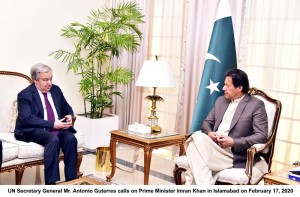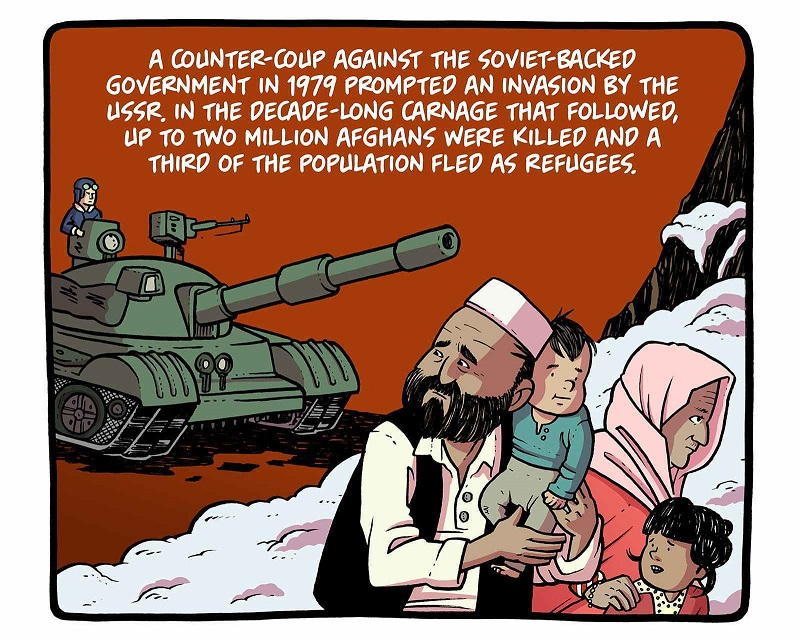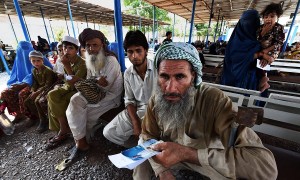40 YEARS OF AFGHAN REFUGEES
Predicaments and policy options for Pakistan
Islamic Republic of Pakistan has completed 40 years of hosting Afghan brothers and sisters, with open arms, grateful hearts, smiling faces and tolerant minds, with minimal international support. They have been here since 1979 when the USSR invaded Afghanistan and compelled needy Afghans to take shelter in their second home, that is, Pakistan. In this connection, United Nations Secretary-General, Antonio Guterres, recently visited Pakistan and generously lauded Islamabad’s efforts for hosting Afghans with outstanding generosity. Although Pakistan has been hosting the Afghan refugees for the last four decades, Afghanistan, which is suffering from insecurity, instability, fragility and economic bankruptcy since decades, also seems unable to absorb the repatriated refugees from Pakistan, Iran and other countries.
Apart from humanitarian aspect, Afghan refugees in Pakistan are an asset as well as a liability for the country. Public opinion in Pakistan on Afghan refugees’ long stay in Pakistan is divided along the axis of asset-liability, though this approach towards looking at the issue is deplored by many who cite humanitarian dimension of this conundrum. The sensitivity and importance of the issue necessitates that thorough discussions and careful decisions are made as miscommunication and hasty steps could waste the entire sacrifices Pakistan has been rendering for the last 40 years. Notwithstanding the debate and the numerous handicaps constraining the spectrum of possibilities for the return of Afghan refugees, there is a general consensus in Pakistan that the question will persist until there is internal security and better governance in Afghanistan. The anticipated improvement comes with a necessary stipulation of withdrawal of foreign forces and capacity building of the Afghan government to effectively govern the country’s territory, especially after the re-election of Dr Ashraf Ghani and the US-Taliban peace talks.
It is pertinent to mention here that international funding for Afghan refugees in Pakistan has been minimal ever since their entry into Pakistan. Refugees, who previously were the victims of communist aggression, were dumped, and with meager resources at hand, Pakistan was left to fend for itself amidst the perpetual outpour of refugees. Today, there are some voices that argue for the deportation of Afghan refugees but this will result only in hatred and ill-will among Afghans towards Pakistan even after enjoying 40-year-long hospitality in this country.
The matrices of asset-liability and humanitarianism, however, don’t neatly fit themselves with certain groups because the opinions are divided and the analytics of refugee issue usually takes place in isolation to draw easy conclusions from a particular strategic perspective. For instance, the onus of introducing the drugs and Kalashnikov culture is often put on Afghan refugees. Moreover, their persistent presence on the Pakistani soil is held responsible for depletion of growth opportunities available to local labour and traders. The argument, however, becomes sympathetic and accommodative as soon as the humanitarian aspect takes precedence.
Another major perspective discusses the issue in the confines of Muslim brotherhood and has remained sympathetic towards the ‘Afghan guests’ despite the ensuing complications. The strategic community is more likely to view it as Pakistan’s investment in Afghans despite the fact that this viewpoint seems to have been exploited against Pakistan and might have contributed to strategic fallouts in Afghanistan and ethnic tensions within Pakistan alongside the possibly related outcomes for the national security. An easy demarcation and the attribution of the narratives to specific groups is, however, utterly implausible. Taking cue from the overall agreement in Pakistani society that Afghan refugees would continue as part of their communities, it feels pertinent to eschew the economic reductionism for the time being and to attempt articulating other facets of the issue.
The strain in the economic, social and cultural fabric of Pakistan caused by the prolonged presence of 2.4 million registered (and numerous non-registered) refugees necessitates that the ideal target should be their respectful repatriation to their homeland. Nevertheless, the limited capacity of Afghan government and the indifference on the part of international community should be factored in for any plan of refugee resettlement in Afghanistan. Creating ‘pull factors’ in Afghanistan by the Afghan government and its sponsors, instead of ‘push factors’ in Pakistan, ought to be a guideline for policymakers in Islamabad. The only possible facilitation Pakistan can offer is data collection and sharing, which is presently in a dilapidated state. The ‘push factors’, on the other hand, would exponentially increase the harassment and forced deportations due to the inexorable disfiguration of governance directives by the authorities on ground. In the light of this insight, it must be mentioned that there is also a considerable agreement that the deportation, if necessary, should be as amicable as possible, and the officials should not be subjected to heavy-handed measures.
Considering these well-entrenched problems, the first course of action should be an efficient and sustained programme of data collection without which the confusions surrounding the presence and legality of Afghans in Pakistan will only perpetuate. Moreover, it is important to not consign the refugee rehabilitation programme, in whichever country, to the ordinary bureaucratic tools of graphs, numbers and charts. A well-trained bevy of officials should consider the matter in its entirety and diversity; with an eye sensitive to perceive the schisms of religion, ethnicity, gender, age, sect and other social markers.
The foremost conclusive judgement which we can derive here is the fact that since it is not likely in the foreseeable future to catch a glimpse of foreign troops leaving Afghanistan, improvement in security situation, fruitful conclusion of the peace process, Pakistan should brace itself for a long haul as far as the phenomenon of repatriation is concerned. The spillover of refugees will continue and the border areas of Afghanistan and Pakistan will be chaotic and incomprehensible for the policymakers. This would culminate in a situation where Afghan refugees are present in Pakistan and, quite possibly, are part of the future of Pakistan. It is, therefore, recommended that the endless process of churning out deadlines should cease.
The issue, in fact, is multi-faceted and has got strategic, humanitarian, social, cultural and political underpinnings. A simple solution would, therefore, not be advisable. Humanitarian dimension of the issue should never lose sight in devising the way forward. A calculated decision would require reliably correct, if not accurate, data. Knowing the whole picture and its dynamics through data would be possible through meaningful coordination and synergy between concerned government agencies, international organizations and other stakeholders. Targets of repatriation should be phased and implemented accordingly while ensuring the dignity of the refugees. Unregistered refugees should be facilitated to register, and given a deadline. On lapse of such deadline, they should either be deported or forced to register as refugees after a brief detention, and dealt as such.
It must be realized that perceptions are extremely important and they require prudent management at all levels. Pakistan needs to capitalize on its image of hosting a large population of refugee on its own. Reports of harassment and exploitation of refugees and subjecting them to rigorous legal procedures should be effectively and visibly checked and dealt with.
To conclude, it can rightly be stated that, Afghan refugees in Pakistan should be taught and trained in a way that they prepare to return to their homeland Afghanistan and act as ambassadors of peace between the two countries. Moreover, it is very easy to blame Pakistan for pushing Afghans back without recourse of its four-decade-long hospitality and immense problems related to Afghan refugees in Pakistan, the real point that asks for a focus is the failure on the part of Afghanistan and global partners in creating an enabling environment for Afghans to return to their homeland.
The author teaches at department of Political Science, University of Malakand, Chakdara.
He can be reached at mairajulhamid717@gmail.com
 Jahangir's World Times First Comprehensive Magazine for students/teachers of competitive exams and general readers as well.
Jahangir's World Times First Comprehensive Magazine for students/teachers of competitive exams and general readers as well.




